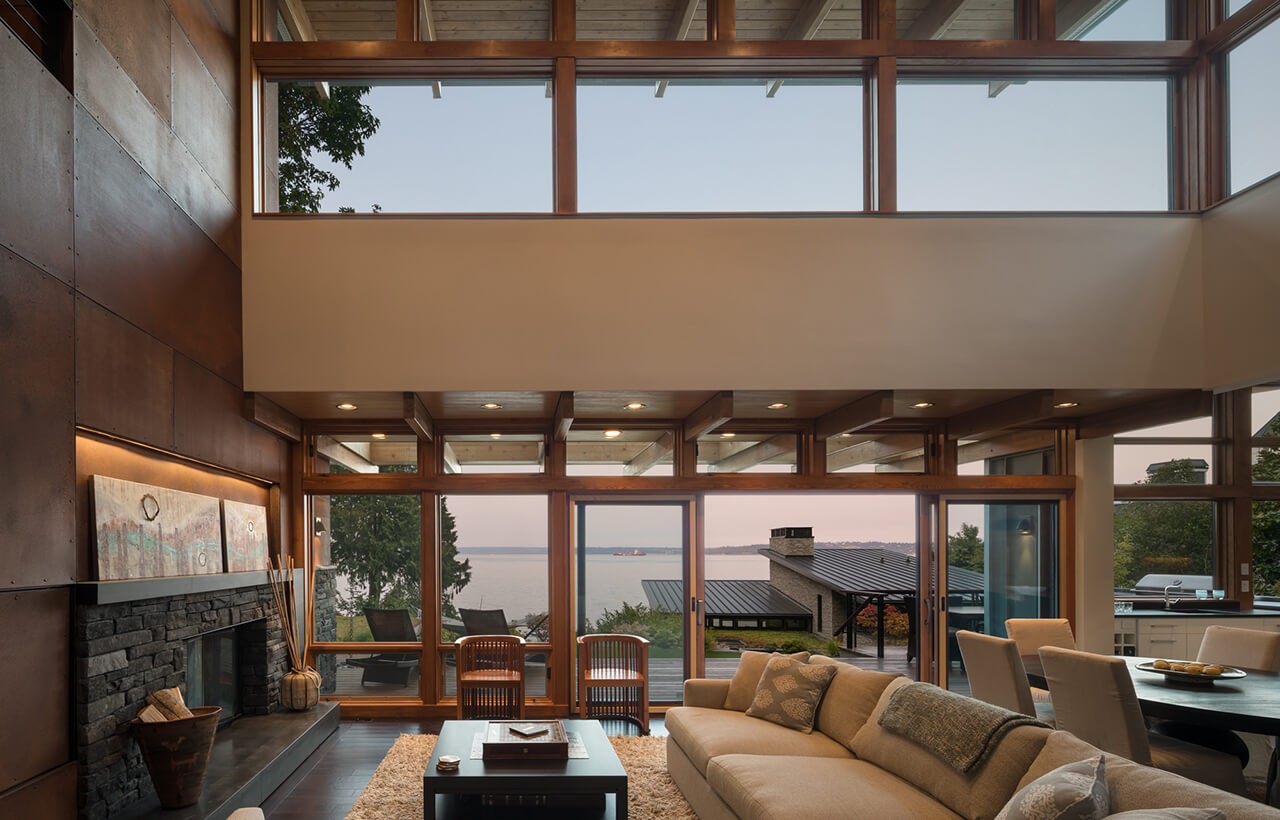Creating an Eco-Friendly Home with a Residential Architect
Sustainable home design is more than just a trend—it is a responsible way to build for the future. A residential architect specializing in eco-friendly design can help homeowners create energy-efficient, environmentally conscious, and aesthetically pleasing spaces that reduce long-term costs and environmental impact.
Whether planning a new home or remodeling an existing one, working with an architect who understands sustainable materials, passive design strategies, and green certifications ensures that the home meets modern sustainability standards.
Why Choose a Residential Architect for Sustainable Home Design?
A residential architect with expertise in sustainable design ensures that a home meets or exceeds green building certifications such as LEED (Leadership in Energy and Environmental Design), Passive House, and Net-Zero Energy. These architects integrate eco-conscious features into the home while maintaining high levels of functionality and design appeal.
One of the key benefits of hiring a residential architect for sustainable home design is their ability to incorporate passive design principles that reduce energy consumption. These strategies include maximizing natural light to reduce reliance on artificial lighting, designing cross-ventilation systems for better airflow, implementing thermal mass materials that naturally regulate indoor temperatures, and positioning windows and roofing to take advantage of solar heat gain in winter while providing shade in summer. With passive design, homeowners experience lower energy bills while reducing their overall carbon footprint.
A residential architect specializing in sustainable design helps homeowners choose environmentally friendly building materials that promote energy efficiency, durability, and health. Some popular options include reclaimed wood for flooring and furniture, recycled steel and concrete to minimize waste, bamboo and cork flooring for renewable alternatives, low-VOC (volatile organic compound) paints and finishes for better indoor air quality, and green roofs or living walls to improve insulation and reduce heat absorption. Choosing the right materials benefits both the environment and the long-term livability of the home.
How a Residential Architect Integrates Sustainability into Home Design
Water efficiency is a critical component of sustainable home design. A residential architect can incorporate rainwater harvesting systems to collect and reuse water for irrigation, low-flow plumbing fixtures to reduce water usage, greywater recycling systems for reusing water from sinks and showers, and drought-resistant landscaping that requires minimal watering. These solutions not only reduce utility costs but also help conserve one of the most precious natural resources.
To achieve a truly sustainable home, integrating renewable energy sources is essential. A residential architect can design a home to accommodate solar panels for electricity and water heating, geothermal heating and cooling systems that use the earth’s natural temperature, wind energy solutions for off-grid living, and battery storage systems to optimize renewable energy use. By incorporating these technologies, homeowners can reduce or even eliminate their dependence on fossil fuels.
Modern smart home systems enhance sustainability by optimizing energy use. A residential architect can integrate automated lighting and shading systems that adjust based on daylight levels, smart thermostats that regulate heating and cooling efficiently, energy monitoring systems that track and manage electricity usage, and smart irrigation systems that water landscapes only when necessary. These innovations allow homeowners to minimize waste and control their energy footprint effortlessly.
How to Find the Right Residential Architect for Sustainable Home Design
When selecting a residential architect, it is important to check their certifications in green building standards. Look for professionals with LEED Accreditation, Passive House Certification, or Living Building Challenge Certification. These credentials indicate that the architect has expertise in designing environmentally friendly homes that meet the highest sustainability standards.
Reviewing an architect’s portfolio is also essential. Homeowners should look for past projects that showcase energy-efficient designs, sustainable materials, and passive heating and cooling strategies. Client testimonials and case studies provide additional insight into the architect’s expertise and approach to eco-conscious design.
Before hiring a residential architect, it is important to ask about their experience with eco-friendly building materials and renewable energy integration, how they incorporate passive design strategies into home layouts, their knowledge of local green building incentives and rebates, and their approach to minimizing construction waste and carbon footprint. These questions help ensure that the architect aligns with sustainability goals.
The Benefits of Sustainable Home Design with a Residential Architect
Working with a residential architect to create a sustainable home offers multiple benefits, including lower utility bills due to reduced energy and water consumption, healthier indoor air quality from non-toxic materials and ventilation improvements, increased home value as energy-efficient homes are in high demand, a smaller environmental footprint through resource conservation and renewable energy use, and improved comfort and livability with smart design choices that enhance natural lighting, insulation, and ventilation.
Conclusion
Sustainable home design is more than a passing trend—it is an investment in the future. Hiring a residential architect with expertise in green building practices ensures that a home is energy-efficient, environmentally friendly, and built to last. From passive design strategies and renewable energy integration to sustainable materials and smart home technology, the right architect can transform a vision into a functional, eco-friendly living space.
If planning a new build or remodel, choosing a residential architect with a focus on sustainability is the key to creating a healthier, more efficient home. Researching residential architects with green building expertise and taking the first step toward an energy-efficient future can lead to a home that is both environmentally responsible and cost-effective in the long run.

